| ||||||||||||||
| ||||||||||||||
| ||||||||||||||
Presidential elections were held in the South African Republic in 1893. [1] The result was a victory for Paul Kruger, although there were concerns that agents of Kruger had manipulated the electoral roll. [1]
| ||||||||||||||
| ||||||||||||||
| ||||||||||||||
Presidential elections were held in the South African Republic in 1893. [1] The result was a victory for Paul Kruger, although there were concerns that agents of Kruger had manipulated the electoral roll. [1]
| Candidate | Votes | % |
|---|---|---|
| Paul Kruger | 7,881 | 52.66 |
| Piet Joubert | 7,009 | 46.83 |
| John Gilbert Kotzé | 76 | 0.51 |
| Total | 14,966 | 100.00 |
| Source: Annual Register [2] | ||

The South African Republic, also known as the Transvaal Republic, was an independent Boer republic in Southern Africa which existed from 1852 to 1902, when it was annexed into the British Empire as a result of the Second Boer War.

The Jameson Raid was a botched raid against the South African Republic carried out by British colonial administrator Leander Starr Jameson, under the employment of Cecil Rhodes. It involved 500 British South Africa Company police launched from Rhodesia over the New Year weekend of 1895–96. Paul Kruger, for whom Rhodes had great personal hatred, was president of the South African Republic at the time. The raid was intended to trigger an uprising by the primarily British expatriate workers in the Transvaal but it failed. The workers were referred to as The Johannesburg Conspirators. They were expected to recruit an army and prepare for an insurrection; however, the raid was ineffective, and no uprising took place. The results included embarrassment of the British government; the replacement of Cecil Rhodes as prime minister of the Cape Colony; and the strengthening of Boer dominance of the Transvaal and its gold mines. The raid was a contributory cause of the Anglo-Boer War (1899–1902).

Stephanus Johannes Paulus Kruger was a South African politician. He was one of the dominant political and military figures in 19th-century South Africa, and State President of the South African Republic from 1883 to 1900. Nicknamed Oom Paul, he came to international prominence as the face of the Boer cause—that of the Transvaal and its neighbour the Orange Free State—against Britain during the Second Boer War of 1899–1902. He has been called a personification of Afrikanerdom, and remains a controversial figure; admirers venerate him as a tragic folk hero.

Kruger National Park is a South African National Park and one of the largest game reserves in Africa. It covers an area of 19,623 km2 (7,576 sq mi) in the provinces of Limpopo and Mpumalanga in northeastern South Africa, and extends 360 km (220 mi) from north to south and 65 km (40 mi) from east to west. The administrative headquarters are in Skukuza. Areas of the park were first protected by the government of the South African Republic in 1898, and it became South Africa's first national park in 1926.
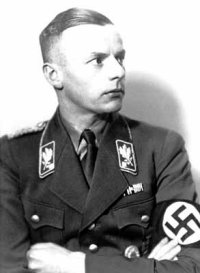
Friedrich-Wilhelm Krüger was a German paramilitary commander in charge of, and personally involved in progressive annihilation of Polish nation, its culture, its heritage and its wealth. Long before the war he was a high-ranking member of the SA and the SS. Between 1939 and 1943 he was the Higher SS and Police Leader in the General Government, giving him command of all police and security forces in German-occupied Poland. In this capacity, he organized and supervised numerous crimes against humanity and had major responsibility for the German genocide of the Polish nation: the extermination of six million Poles and massive destruction, degradation and impoverishment of the Polish state. At the end of the war, never convicted for the war crimes, he committed suicide.
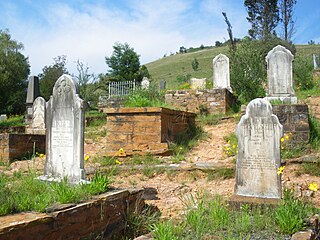
Uitlander, Afrikaans for "foreigner", was a foreign migrant worker during the Witwatersrand Gold Rush in the independent Transvaal Republic following the discovery of gold in 1886. The limited rights granted to this group in the independent Boer Republics was one of the contributing factors behind the Second Boer War.
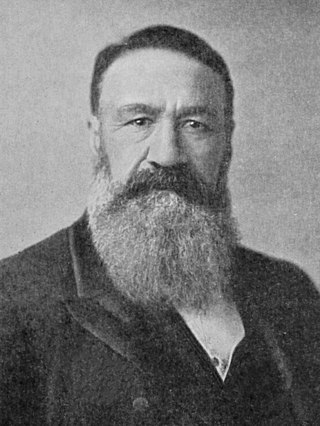
Petrus Jacobus Joubert, better known as Piet Joubert, was Commandant-General of the South African Republic from 1880 to 1900. He also served as Vice-President to Paul Kruger from May 1883 to October 1884 and from May 1896 until his death. He served in First Boer War, Second Boer War, and the Malaboch War.

Diane Kruger is a German actress. Early in her career, Kruger gained worldwide recognition and received the Trophée Chopard from the Cannes Film Festival.
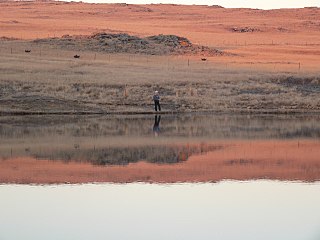
Dullstroom, also known as Emnothweni, is a small town in Mpumalanga province, South Africa. The town lies 35 kilometres north of Belfast and some 53 kilometres south-west of Lydenburg on the R540 road. Dullstroom lies on the Highveld platea that is found in South Africa, and is the reason that its climate is so different from the surrounding areas.
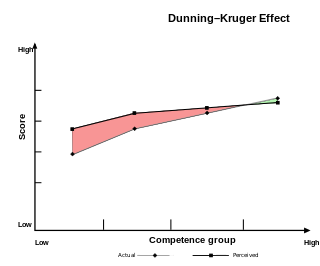
The Dunning–Kruger effect is a cognitive bias in which people with limited competence in a particular domain overestimate their abilities. Some researchers also include the opposite effect for high performers: their tendency to underestimate their skills. In popular culture, the Dunning–Kruger effect is often misunderstood as a claim about general overconfidence of people with low intelligence instead of specific overconfidence of people unskilled at a particular task.

Sir John Gilbert Kotzé KC was an eminent South African jurist.
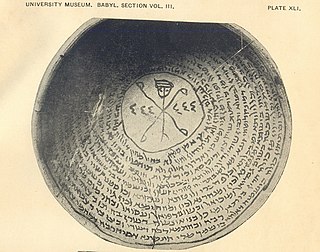
Jewish Babylonian Aramaic was the form of Middle Aramaic employed by writers in Lower Mesopotamia between the fourth and eleventh centuries. It is most commonly identified with the language of the Babylonian Talmud, the Targum Onqelos, and of post-Talmudic (Gaonic) literature, which are the most important cultural products of Babylonian Jews. The most important epigraphic sources for the dialect are the hundreds of inscriptions on incantation bowls.
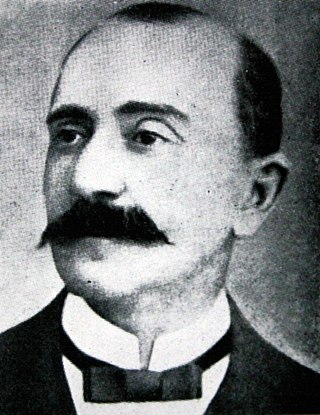
Alois Hugo Nellmapius, was a South African businessman, industrialist and pioneer conservationist.

La Horgne is a commune in the Ardennes department in northern France.

Hermann Ehlers was a German politician. He was the 2nd President of the Bundestag from 19 October 1950 to 29 October 1954.

The Transvaal Civil War was a series of skirmishes during the early 1860s in the South African Republic, or Transvaal, in the area now comprising the Gauteng, Limpopo, Mpumalanga, and North West provinces of South Africa. It began after the British government had recognised trekkers living in the Transvaal as independent in 1854. The Boers divided into numerous political factions. The war ended in 1864, when an armistice treaty was signed under a karee tree south of the site of the later town of Brits.

Ohm Krüger is a 1941 German biographical film directed by Hans Steinhoff and starring Emil Jannings, Lucie Höflich, and Werner Hinz. It was one of a series of major propaganda films produced in Nazi Germany attacking the United Kingdom. The film depicts the life of the South African politician Paul Kruger and his eventual defeat by the British during the Boer War.
Presidential elections were held in the South African Republic between 3 January and 4 February 1898. The result was a victory for incumbent Paul Kruger.

The Beaver Coat is a 1949 East German comedy film directed by Erich Engel and starring Fita Benkhoff, Werner Hinz and Käthe Haack. It is an adaptation of Gerhart Hauptmann's 1893 play The Beaver Coat, previously adapted into a 1928 silent film and a 1937 sound film produced during the Nazi era.

The Kruger Millions is a hoard of gold reputed to have been hidden in South Africa by or on behalf of President Paul Kruger to avoid it being captured by the British during the Second Boer War. According to legend, about two million pounds in buried gold and diamonds lie hidden in the Blyde River area in the province of Mpumalanga. The treasure is said to consist of hidden gold and coins worth more than US $500,000,000 in today’s terms. Allegedly the treasure was hidden by or for President Paul Kruger at the end of the South African Boer War somewhere between 1899 and 1902. Searches have failed to uncover any treasure.